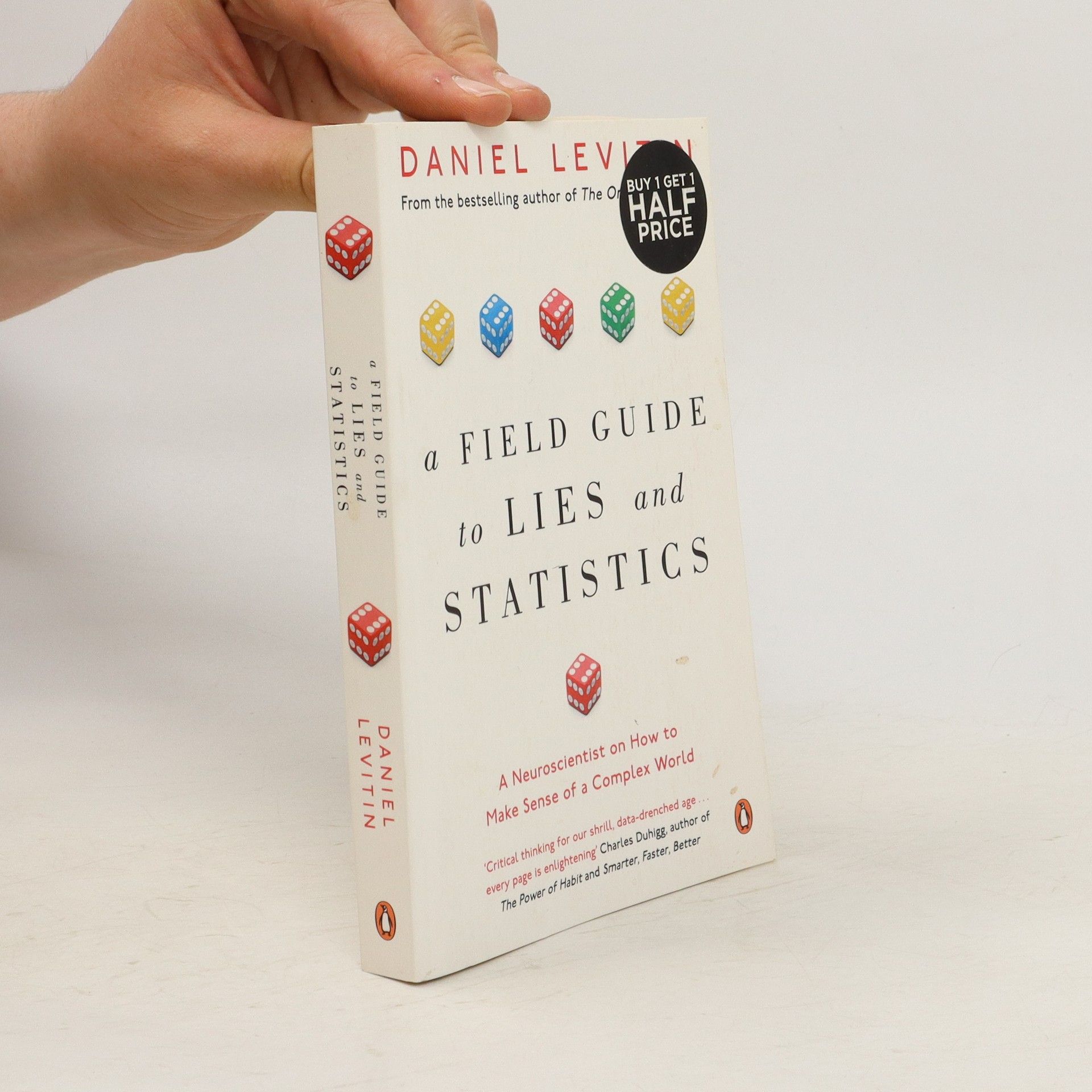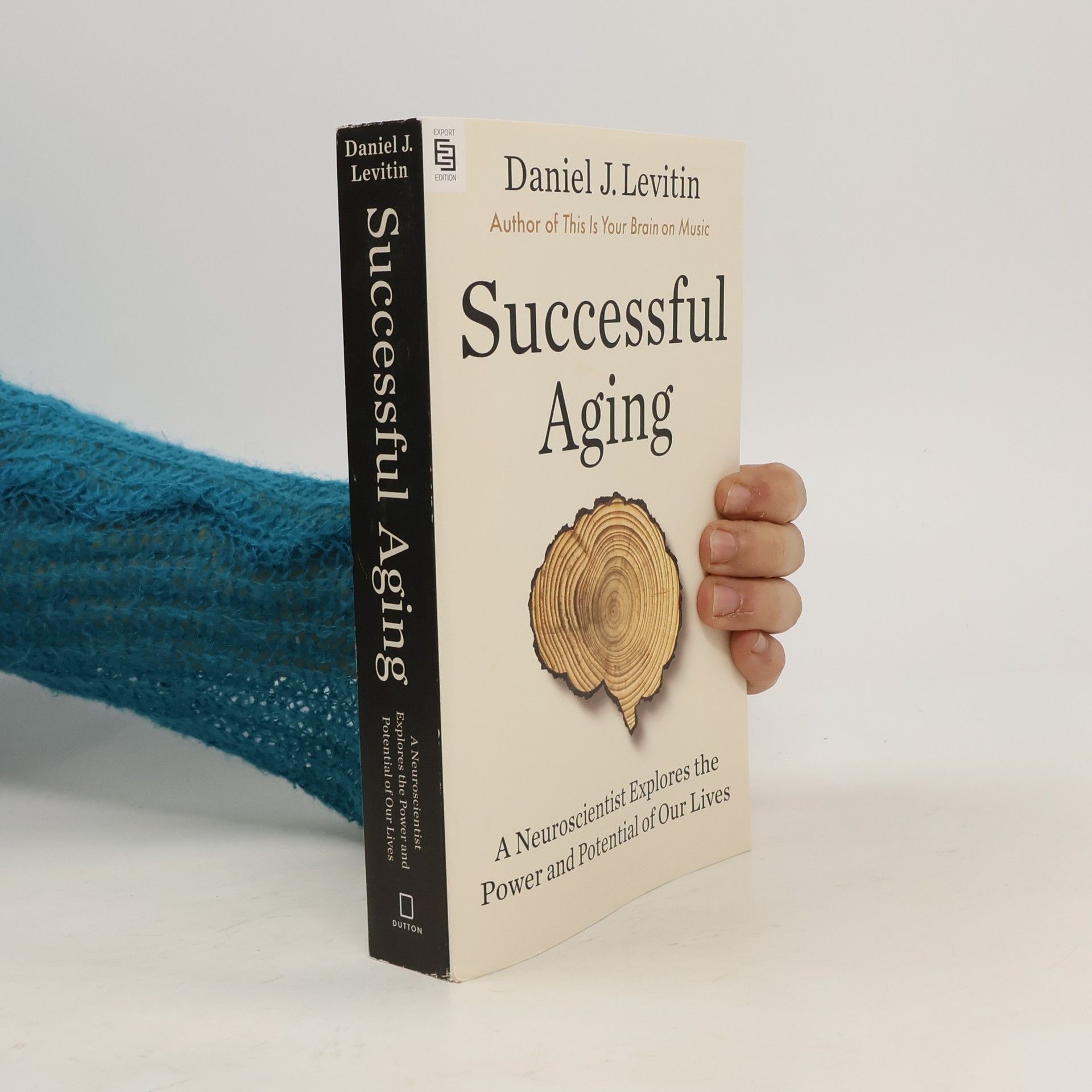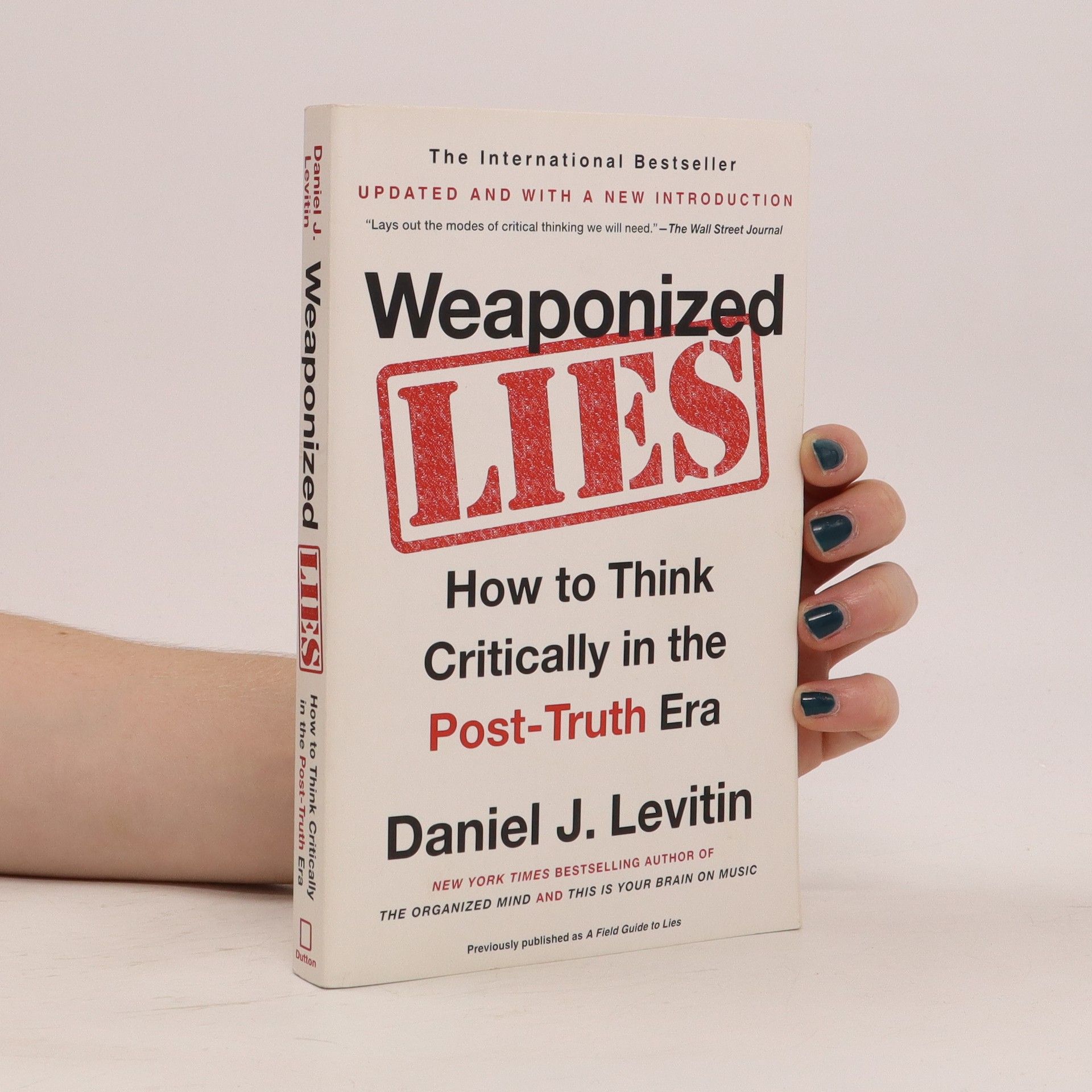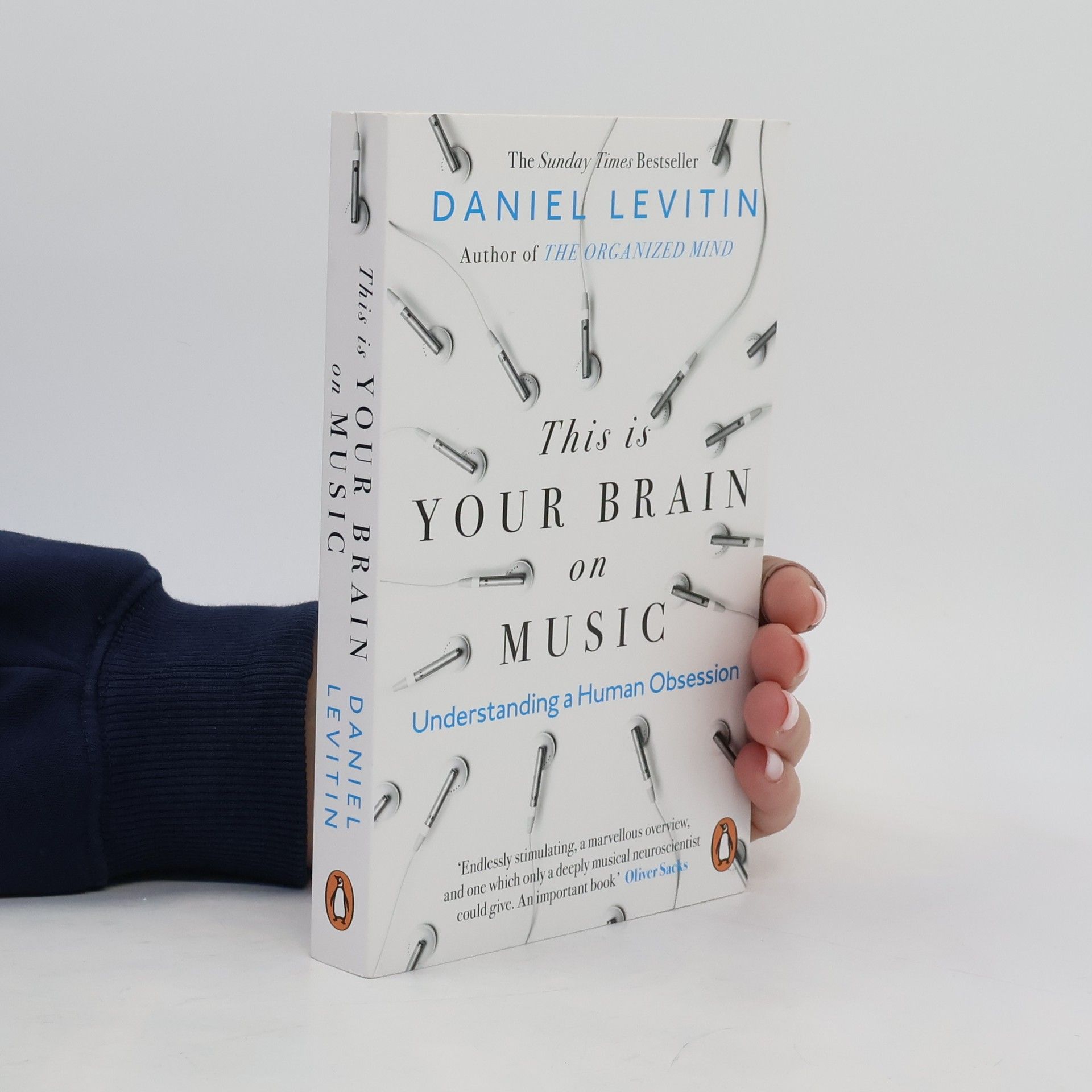In this ground-breaking book, Dr Daniel Levitin uses cutting-edge research from neuroscience and psychology to demonstrate the importance of the stage that follows the middle-age. Packed with engaging interviews with successful, creative individuals far beyond the conventional age of 'retirement', this book also reflects on challenges many…
Daniel J. Levitin Livres
Daniel J. Levitin est un neuroscientifique et un musicologue dont le travail explore la relation complexe entre la musique, le cerveau et la perception humaine. Apportant une perspective unique de sa vaste expérience de musicien et d'ingénieur, sa recherche fait le lien entre la pratique artistique et l'investigation scientifique. Levitin se penche sur la manière dont le cerveau traite et réagit à la musique, découvrant les profonds mécanismes cognitifs et émotionnels que la musique engage. Ses écrits sur la psychologie de la musique et la cognition sont à la fois accessibles et captivants, offrant aux lecteurs une compréhension plus approfondie du rôle que joue la musique dans nos vies.






The World in Six Songs : How the Musical Brain Created Human Nature
- 368pages
- 13 heures de lecture
Dividing the sum total of human musical achievement, from Beethoven to The Beatles, Busta Rhymes to Bach, into just six fundamental forms, Levitin illuminates, through songs of friendship, joy, comfort, knowledge, religion and love, how music has been instrumental in the evolution of language, thought and culture. And how, far from being a bit of a song and dance, music is at the core of what it means to be human. A one-time record producer, now a leading neuroscientist, Levitin has composed a catchy and startlingly ambitious narrative that weaves together Darwin and Dionne Warwick, memoir and biology, anthropology and a jukebox of anecdote to create nothing less than the ' soundtrack of civilisation' .
Recent studies show that our decision-making skills improve as we age, and that our happiness levels peak at age eighty-two. Levitin examines the neuroscientific evidence to challenge many of the beliefs that surround aging. He provides realistic plans for how you can make the most of your seventies, eighties, and nineties today-- no matter how old you are now. -- adapted from jacket
A Field Guide to Lies and Statistics
- 304pages
- 11 heures de lecture
A guide to critical thinking in the 'post-truth' era, from the author of Sunday Times best-seller The Organized Mind We live in a world of information overload. Facts and figures on absolutely everything are at our fingertips, but are too often biased, distorted, or outright lies. From unemployment figures to voting polls, IQ tests to divorce rates, we're bombarded by seemingly plausible statistics on how people live and what they think. Daniel Levitin teaches us how to effectively ask ourselves: can we really know that? And how do they know that? In this eye-opening, accessible guide filled with fascinating examples and practical takeaways, acclaimed neuroscientist Daniel Levitin shows us how learning to understand statistics will enable you to make better, smarter judgements on the world around you.
The World in Six Songs
- 354pages
- 13 heures de lecture
Analyzes six evolutionary musical forms while identifying neural impulses that reflect the brain's development in accordance with music, illuminating the sophisticated biological process that accompanies the musical experience.
This is your brain on music: Understanding a human obsession
- 322pages
- 12 heures de lecture
This is the first book to offer a comprehensive explanation of how humans experience music and to unravel the mystery of our perennial love affair with it. Using musical examples from Bach to the Beatles, Levitin reveals the role of music in human evolution, shows how our musical preferences begin to form even before we are born and explains why music can offer such an emotional experience. Music is an obsession at the heart of human nature, even more fundamental to our species than language. In This Is Your Brain On Music Levitin offers nothing less than a new way to understand it, and its role in human life.
"It's raining bad data, half-truths, and fake news out there - and some of this nonsense is having devastation consequences. Daniel J. Levitin shows how corporate and government reports, statistics, and news stories can mislead, and reveals the way lying weasels use them. What makes lies dangerous is the certainty with which people are prone to believe them. Here is how to fix that."--Page [4] of cover
The Organized Mind
- 496pages
- 18 heures de lecture
The information age is drowning us in an unprecedented deluge of data. At the same time, we’re expected to make more—and faster—decisions about our lives than ever before. No wonder, then, that the average person reports frequently losing car keys or reading glasses, missing appointments, and feeling worn out by the effort required just to keep up. But somehow some people become quite accomplished at managing information flow. In The Organized Mind, Daniel J. Levitin, Ph.D., uses the latest brain science to demonstrate how those people excel—and how readers can use these methods to regain a sense of mastery over the way they organize their homes, workplaces, and lives. With lively, entertaining chapters on everything from the kitchen junk drawer to health care to gambling in Las Vegas, Levitin reveals how new research into the cognitive neuroscience of attention and memory can be applied to daily life. His practical suggestions call for relatively minor changes that require little effort but will have remarkable long-term benefits for mental and physical health, productivity, and creativity. This Is Your Brain on Music showed us how to better play and appreciate music through an understanding of how the brain works. The Organized Mind shows us how to navigate the churning flow of information in our daily lives with the same neuroscientific perspective.
This is Your Brain on Music
- 336pages
- 12 heures de lecture
Using musical examples from Bach to the Beatles, Levitin reveals the role of music in human evolution, shows how our musical preferences begin to form even before we are born and explains why music can offer such an emotional experience. Music is an obsession at the heart of human nature, even more fundamental to our species than language. In This Is Your Brain On Music Levitin offers nothing less than a new way to understand it, and its role in human life
Music as Medicine: How We Can Harness Its Therapeutic Power
- 416pages
- 15 heures de lecture
Exploring the transformative effects of music, this book delves into its profound healing capabilities, supported by recent scientific research. It reveals how music can reduce stress, enhance cognitive functions, and even combat neurodegenerative diseases. The author, a neuroscientist and musician, presents innovative concepts like 'rhythmic auditory stimulation' for treating conditions such as PTSD and multiple sclerosis. Through insights on how music can aid in emotional healing and memory repair, the book celebrates humanity's deep connection to music and its potential as a therapeutic tool.



